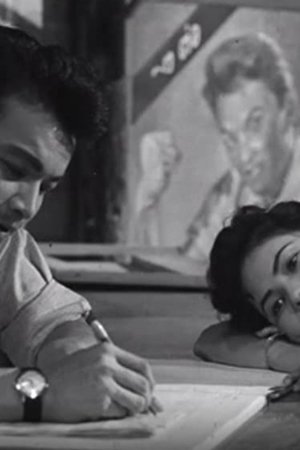Country Hotel (1957) [N/A]
Featuring:
Tat Egatat, Prachuap Lukgamdi, Sutasit Satayawon
Written by:
Ratana Pestonji
Directed by:
Ratana Pestonji
Release Date:
September 21, 1957
Original Title:
โรงแรมนรก
Alternate Titles:
Hell Hotel
Rong Ram Narok
Genres:
Comedy | Crime
Production Companies:
Hanuman Film
Production Countries:
Thailand
Ratings / Certifications:
N/A
Runtime: 138
Noi runs a rural bar and guesthouse called the Paradise Hotel. He tends bar and arm wrestles any challengers. The hotel, which has only one room, already has a guest, a man named Chana. Chana is annoyed that the hotel plays host to various musical groups, including a man who sings European opera, another man who practices the trombone, a Peking opera troupe, a Filipina ballad singer and a brass band that accompanies two bare-knuckles boxers.
One of Thai cinema's first forays into sync-sound, COUNTRY HOTEL (or "Hell Hotel" in its more literal translation) seems to beg an assessment that's sympathetic to its technical jitters. I didn't have a problem with those, though I still didn't care much for the overall film.The story centers on a one-room hotel in the boondocks (why build a one-room hotel?), where a bunch of people converge awaiting the arrival of a courier bearing a 600,000 bhat payload. To get to *that*, however, you have to first slog through an hour of grating comedy, where the hotel's poor solitary guest has to put up with an endless parade of people being incredibly annoying. There seems to be some long-standing (and apparently globe-spanning) tradition that it's funny and not simply irritating to watch a normal person forced to put up with unreasonable people. I don't know what segment of the population this appeals to, but it's certainly not me, whether it's in a B&W Thai comedy from the '50s or DINNER FOR SCHMUCKS. I just kept feeling bad for the poor guy trying to relax and read a book in HIS OWN DAMN HOTEL while a ceaseless parade of musicians tramps through making endless racket. A woman also shows up demanding a room and tries to throw him out of his, which the film attempts to play as some kind of IT HAPPENED ONE NIGHT-style meet-cute when, again, it's just one more obnoxious inconvenience standing between this poor guy and his book.Suddenly, about halfway through, the film makes a VIOLENT TONAL SHIFT as some gangsters show up and turn the movie into a noirish and brooding melodrama. Even granting this genre-hopping as a cultural predilection of the time (I presume), the crime element is all wet: the guys have wind of the 600,000 bhat, which is supposed to be dropped off the following morning, so they take everyone hostage and... just sit around for several hours. The entire film is suffused with this directionlessness. The first half grants no indication where the story is going or, indeed, whether there's even a story at all, while the second just spins its wheels, depicting in near-real-time a bunch of people sitting around waiting for something to happen. The "climax" is another criminal showing up and deciding to play Russian roulette with the remaining robber. Of course, once one of them ends up dead, it gives the good guys a solid upper hand, so it's not clear what exactly their plan was.I liked Prachuap Lukgamdi as Noi, the bartender and hotel proprietor - his sassy line deliveries are the highlights of the movie, and his scrawny body well-suited to physical comedy. Chana Sri-Ubon, very handsome, makes for a sympathetic protagonist, while Sarinthip Siriwan as Riam, the Claudette Colbert to Chana's Clark Gable, I guess, fulfills her function of existing as a cinematic love interest. Honestly, I found any chemistry between the two wanting. The film is certainly noteworthy as a technical achievement in Thai cinema, though the limitations imposed by its sound equipment keep the action stage-bound to a single claustrophobic set, producing an inadvertent chamber drama that's at once both intriguing and stifling because of its limitations. As for the script, I'm still searching for a technological advance to blame its flaws on.







